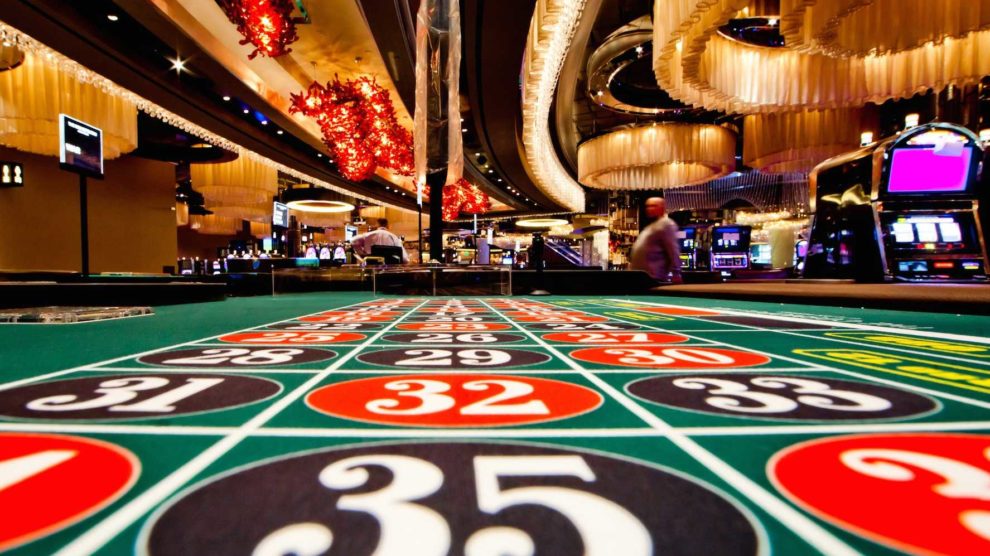
Gambling games have long captured the fascination of people around the globe, becoming an integral part of both fun and tradition. From the shimmering lights of Nevada to the immersive experience of virtual casinos, these experiences evoke excitement, risk, and sometimes even a sense of nostalgia. They are not just just pastimes; they have woven themselves into the tapestry of human experience, influencing everything from film and songs to fashion and writing.
The allure of casino games transcends the gambling aspect, tapping into larger themes of luck, possibility, and social interaction. As players convene around a card table or spin the wheel of fortune, they engage in an age-old ritual that echoes with our shared desire for thrill and instability. This fascination has led to the rise of numerous references in films, tracks, and electronic games, showcasing how deeply entrenched these pastimes are in pop culture. Whether it is the high-stakes tension of a legendary caper or the colorful nightlife portrayed in recordings, casino games have carved out a substantial role that reflects our relationship with risk and reward.
Cultural Significance of Casino Games
Casino games have played a pivotal role in cultural contexts throughout the ages. Originating from ancient civilizations, games of chance were often linked to rituals or events. For example, early forms of gambling can be traced back to ancient China and the Roman Empire, where dice games and betting on outcomes were common pastimes. These activities not only functioned as entertainment but also as means of social interaction, facilitating relationships among people within societies.
As cultures evolved, so did the sophistication and structure of casino games. The creation of official casinos in the 17th century, particularly in the Italian region, marked a notable shift in how games were perceived and structured. With specific spaces for gambling, the casino became a social hub where patrons from various backgrounds gathered. This evolution contributed to the validation of the industry, transforming it from a mere pastime into an organized industry that shaped the economy and regulations.
The impact of casino activities on popular culture cannot be overlooked. As they were brought into the limelight in books and movies, games such as Texas Hold’em and blackjack became symbols of chance, chance, and strategy. Iconic characters and narratives have emerged around these activities, illustrating societal attitudes towards fortune, prosperity, and vice. This fascination with gambling activities has permeated various forms of entertainment, cementing their status in the collective consciousness and linking them to wider cultural narratives throughout the ages.
Representation of Casino Games in Entertainment
Casino activities have long been a popular theme in various forms of media, reflecting both the fascination and nuances of gambling culture. Movies such as Ocean’s 11 and Casino Royale portray figures who navigate dangerous scenarios, showcasing not only the allure of the gambling environment but also the tactics and choices that come with playing popular games like Texas Hold’em and 21. These films often dramatize the thrill of winning and the potential results of losing, encapsulating the perils involved in betting.
TV programs have also explored the realm of gambling activities, often integrating them into the storyline as a backdrop for character arcs and conflict. Shows like Las Vegas depict the experiences of casino workers and patrons, highlighting the dynamic, often chaotic energy of the casino floor. Docuseries featuring intense betting contests further emphasize the fascination of gambling activities, drawing viewers into the excitement and strategy involved in each session. Through these depictions, media not only amuses but also sparks conversations about fortune, expertise, and the nature of chance.
Video games have increasingly integrated casino games into their structure, allowing players to experience the experience of betting without monetary loss. Games within the domain of online gaming often include online slot machines, online poker, and other casino favorites, creating an engaging environment that mirrors actual casino experiences. 78win These digital representations make gambling activities accessible to a broad demographic, appealing to both players who indulge and those who enjoy the excitement of simulation. As a result, the portrayal of casino games in entertainment continues to shape cultural attitudes and importance, highlighting their function in society and the cultural landscape.
Effect of Casino Games on Communities
Casino games have a significant effect on communities, influencing various aspects of culture and interpersonal behavior. They often function as a platform for community engagement, where people gather to experience a shared experience. Game nights with friends or trips to casinos become group events that build connections and create shared moments. This communal aspect boosts the fun value of gambling activities, making them a popular choice for celebrations and recreational pursuits.
Additionally, casino games have been depicted in countless films, television shows, and literature, shaping perceptions and attitudes towards gaming and betting. Icons like James Bond playing baccarat or the high-stakes poker scenes in films have embedded these games in the shared imagination. This representation often idealizes the culture associated with casino activities, drawing in new players and impacting trends in both fashion and conduct. These portrayals can ignite curiosity and lead to a more profound investigation of the nuances of gaming.
However, there are also adverse consequences linked to the widespread appeal of casino games. The temptation of quick monetary gain can lead to gambling addiction and financial troubles for some individuals. Society must grapple with these issues, promoting responsible gaming and awareness of the dangers involved. Finding a balance between the entertainment value of casino games with the risks is crucial to ensure that they continue to be a positive aspect of our societal fabric.
